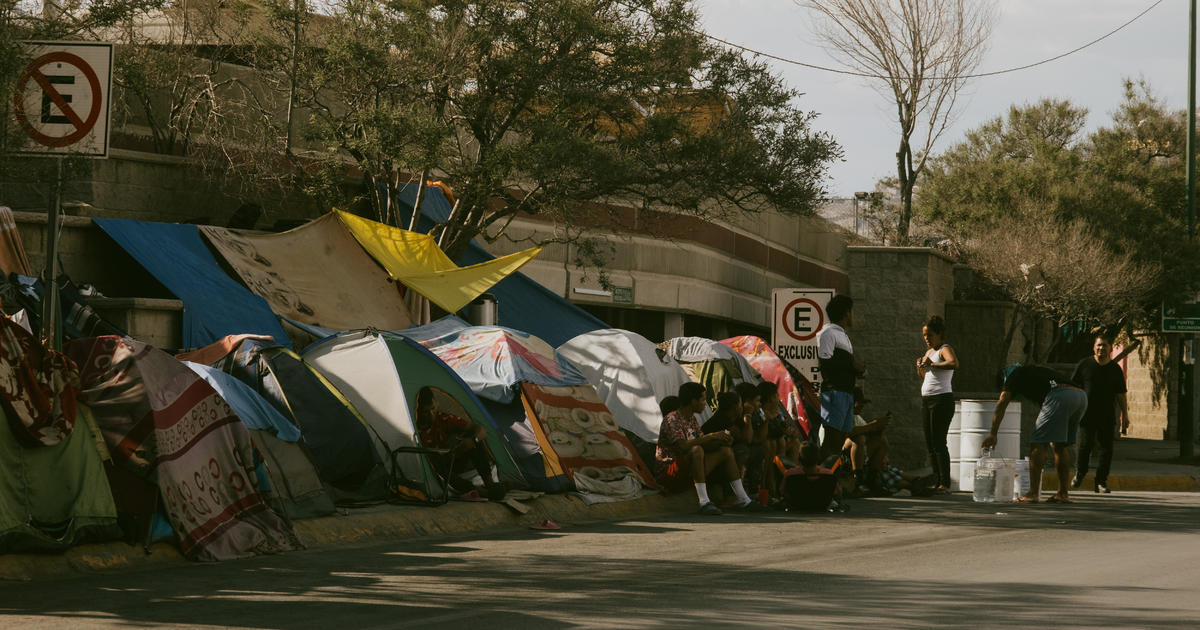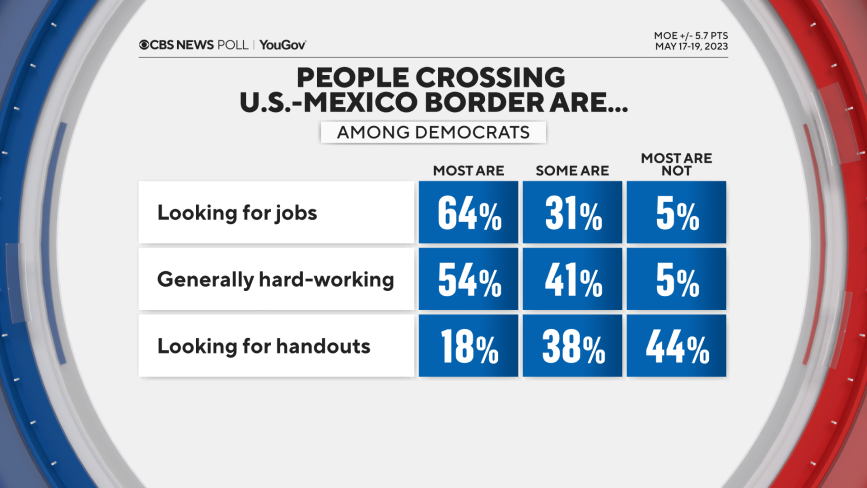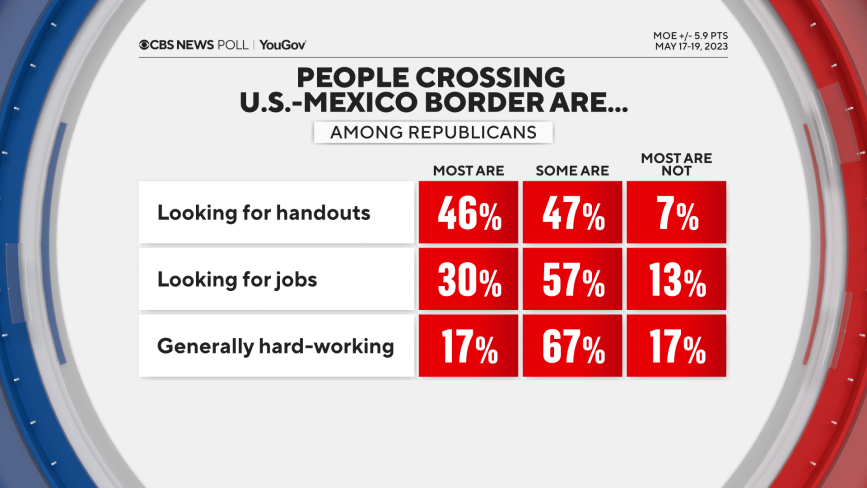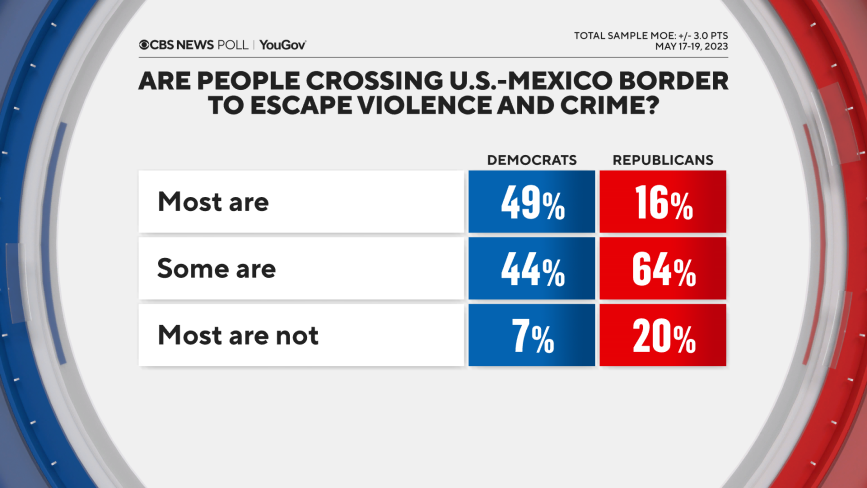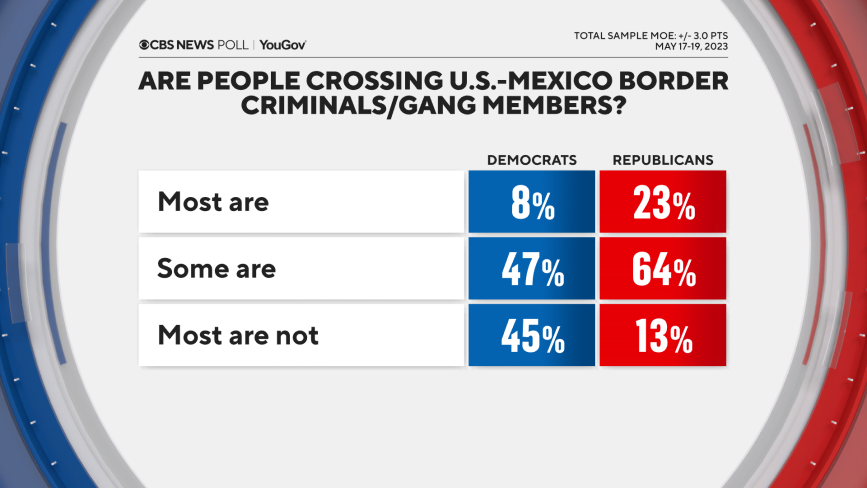Ask people what kind of issue the border is, and you see how it touches so many aspects of life: it’s an issue of the economy, of security and even a social or humanitarian issue in the minds of most Americans. Little wonder it causes such heated debates.
That also means that what Americans want done at the border is related to why they think people are trying to cross it in the first place.
Economics and migrants
Start with economics — because for both Democrats and Republicans, the border and migration issue is an economic one, but in different ways.
Democrats believe most people trying to cross the border are “generally hard working people” and “looking for jobs.” Republicans tend to see this as more mixed: that some are, but some aren’t. Instead, Republicans are twice as likely as Democrats to think most migrants are “looking for handouts and welfare.”
Humanitarian concerns
On humanitarian issues, most agree that the border presents a humanitarian issue, too, that is, it speaks to how the U.S. treats people in tough situations.
The bulk of Americans do believe that at least some of the migrants are trying to escape violence elsewhere.
There’s a party difference in how many. Democrats are three times more likely than Republicans to think most migrants are fleeing crime and violence elsewhere. Republicans believe the situation is more mixed.
And some Americans also call it a matter of race, in how they see Hispanic people being treated. Large numbers of Democrats, but fewer Republicans, use this lens, and Hispanic people in particular are much more likely to see it this way than White people.
Security and the border
Next, security: Majorities also see it as a national security matter, pertaining to potential threats; Republicans especially so.
As opposed to fleeing from violence, more than half of Americans voice suspicion that at least some of the migrant groups trying to cross contain criminals and gang members. One political view stands out here: Republicans who identify as MAGA are twice as apt as non-MAGA Republicans to say most of them are.
And here’s how all it connects:
Immigration policy is partly about numbers, of course. But it’s also about people, and views on it are often connected to what Americans think of those who are trying to enter the U.S.– including those assumed motivations and assumed reasons for trying to cross the border.
People who express desire for the strictest immigration policies — that the U.S. should stop all immigration, or that no one ought be allowed to cross the border — are also people who tend to hold the most negative views of most migrants and their motives. That is, they’re more apt to think the bulk of migrants are looking for handouts, or are gang members and criminals.
People who wish to allow at least some immigration, generally, are also those who tend to believe migrants are in difficult circumstances, fleeing violence, or that their motivations are at least positive, describing them as probably hard-working, as opposed to looking for handouts.
This CBS News/YouGov survey was conducted with a nationally representative sample of 2,188 U.S. adult residents interviewed between May 17-19, 2023. The sample was weighted according to gender, age, race, and education based on the U.S. Census American Community Survey and Current Population Survey, as well as past vote. The margin of error is ±3.0 points.


